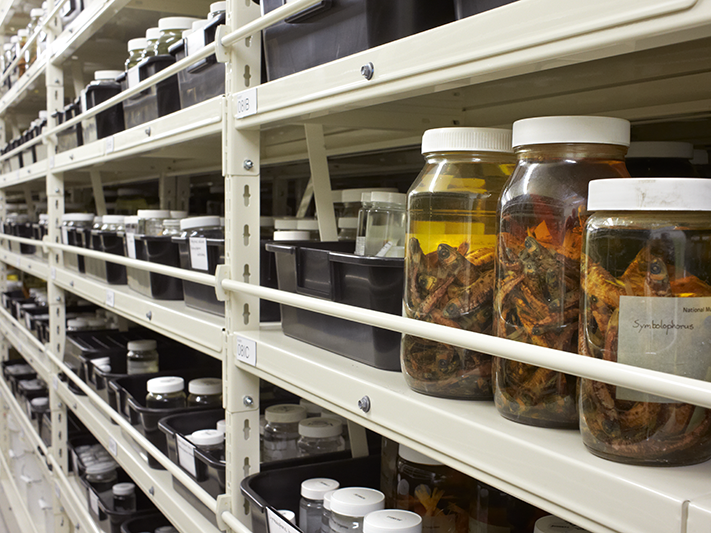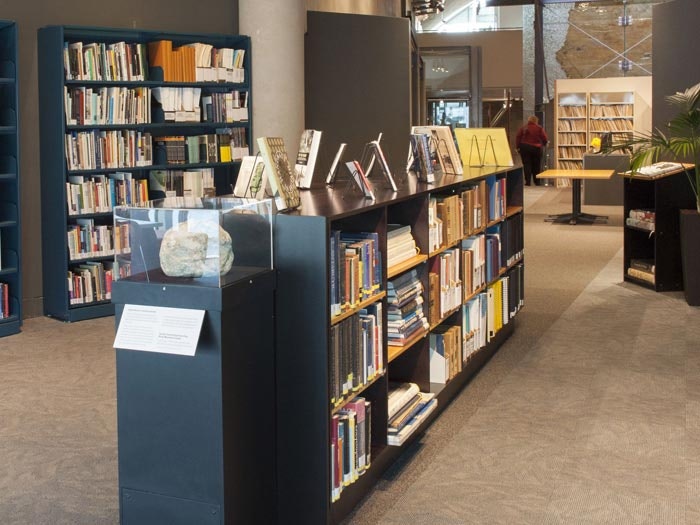Tory Street
While not generally open to the public apart from hosted tours and research visits, our building at Tory Street plays a large part in what Te Papa does alongside exhibitions and mahi at the main museum. Along with being a securely monitored storage facility, many curators, conservators, and researchers work ‘up the road’ from colleagues at Cable Street.
Natural history collection dry storerooms that house pinned insects, microscope slides, shells, fossils, eggs, bird, and mammal study skins and skeletons
The Natural History wet collection storage facility housing vials, jars, and metal tanks of fish, marine and land invertebrates, reptiles, and frogs preserved in fluid
Research laboratories and technical work rooms for examining, preparing, and preserving specimens, a genetics laboratory, freezers for sample storage and an X-ray suite for imaging fish
Storerooms for scientific field gear and diving equipment, an insect-rearing room, and a room that houses a flesh-eating beetle colony that is used to prepare bone specimens
History Stores, including international history and textile laboratories
Art Stores and laboratories, including ceramics, and sculptures
Conservation of objects, paintings, and textiles
Bulk Collection Store including large objects like waka, and large natural history specimens
Mountmaking, framing, and object support for exhibitions, storage, touring, and loans
Imaging and digitisation studio, and photographic negatives storage
Archives Office, Corporate Records Office, reading rooms, and the Hector Library
Meeting rooms, offices, and workstations.
We also have another secure storage facility in the Hutt Valley, mainly housing very large items, and work is underway on our new storage and research facility that will house part of New Zealand’s natural history collection.
Te Papa's Tory St building, photograph by Chris Paulin. Te Papa

![Diary of Felton Mathew (& Others) [unidentified subsequent owners/authors] An old book with a paper bag next to it with handwriting covering it.](/assets/76067/1695937237-ma_i219144_tepapa_diary-of-felton-mathew_preview.jpg?ar=1.3333333333&fit=crop&auto=format)
